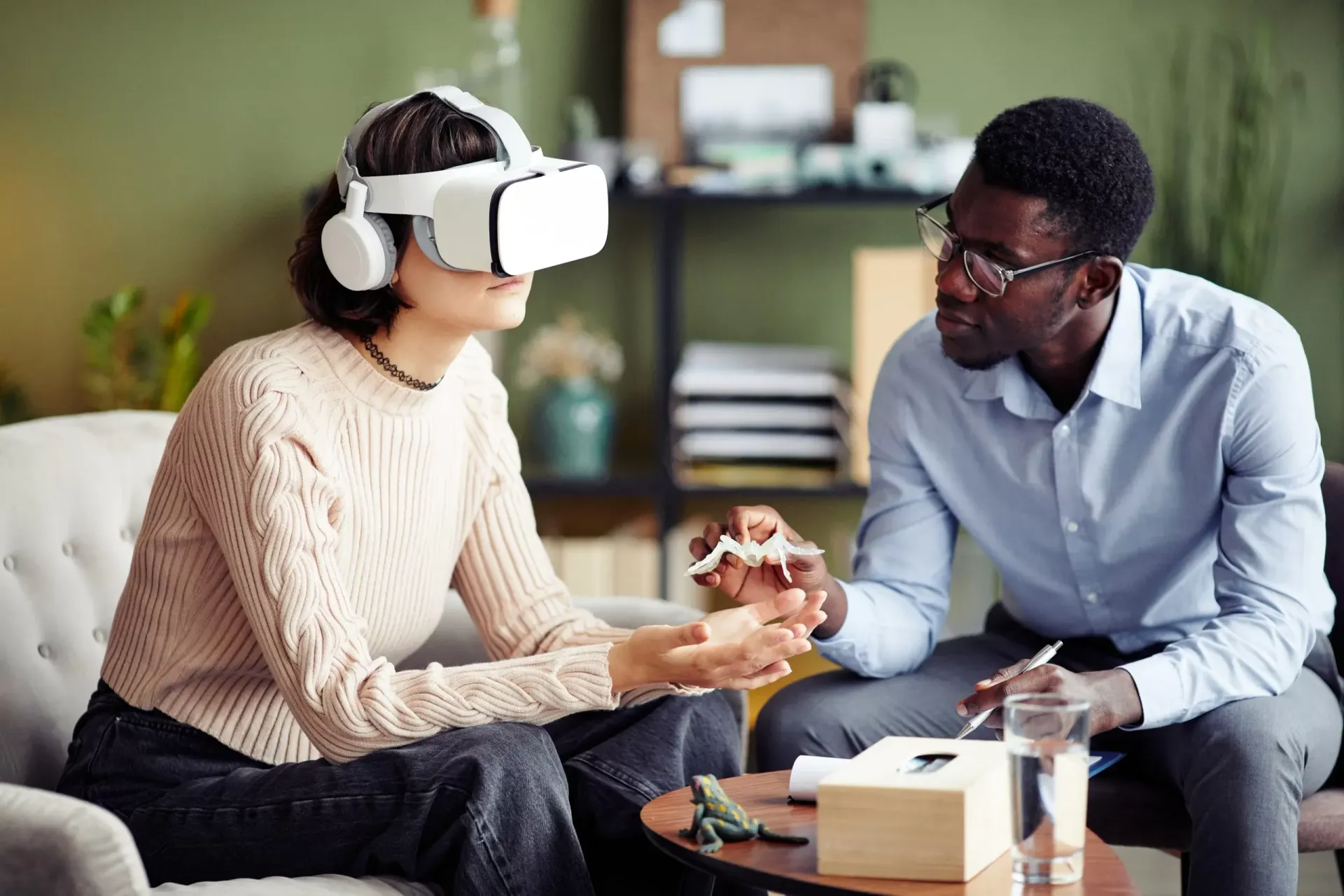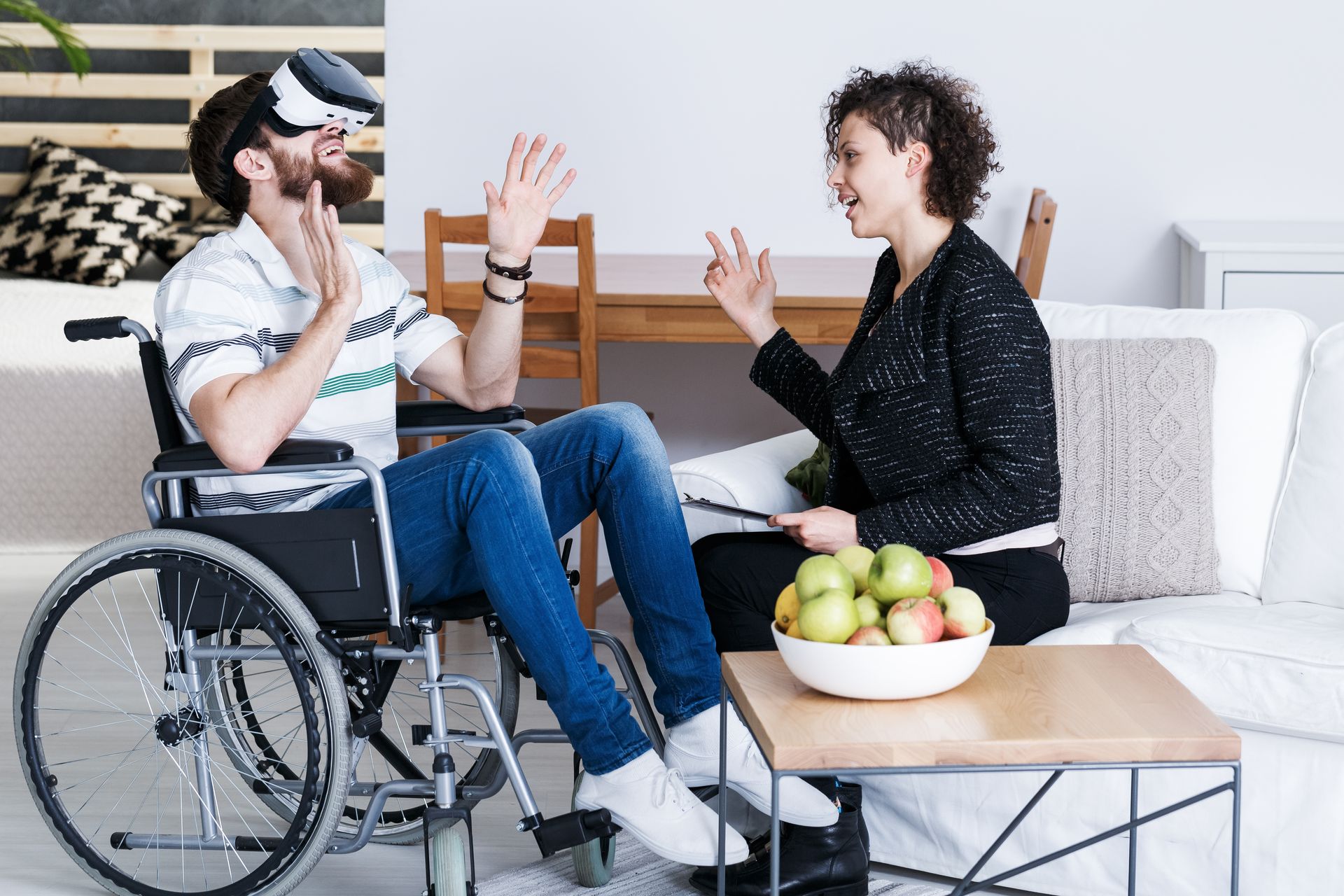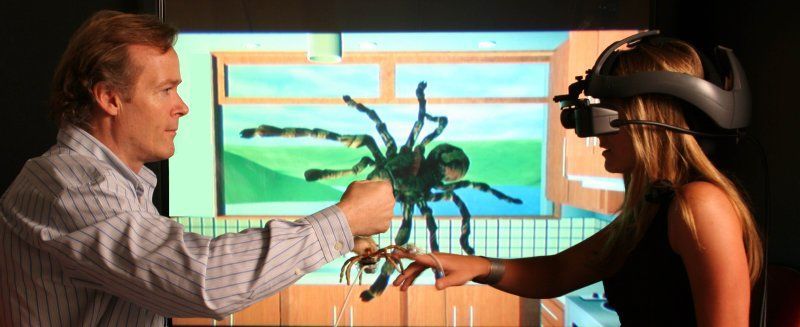
VR and mental health have become a match made in Heaven for people suffering from conditions as wide-ranging as post-traumatic stress disorder, anxiety and other stress-related problems.
The idea behind VR and mental health is to convince your body that you are suffering some sort of condition and then allow the person to respond to it, normalize it, and, ultimately, tolerate the conditions.
Professionals in several sectors should consider how VR and mental health can affect treatment plans in this emerging technology.
In short, this technology allows users to interact with a computer-generated environment.
You wear the VR headset and images are projected creating the illusion of being in a different place – that is, you’re in a virtually real image.
Although gaming, education, and entertainment represent the bulk of uses today, VR and mental health have also been paired to explore the potential treatment of mental health conditions.

A growing body of evidence suggests that VR and mental health treatment do, indeed, have a bright future together.
A study published in the scientific journal "Springer Link" Frontiers in Psychiatry” found that VR has the potential as a low-intensity intervention to promote relaxation and reduce stress for adults with mental health conditions. The effects are especially effective in anxiety or stress-related problems.
Going under in virtual reality allows patients to face their fears and anxieties without real physical repercussions.
This roundup of studies only included peer-reviewed journals, lending more credence to the studies' results.
In a second study, this one by the National Center for Biotechnology Information, the research found that VR and mental health are a "potentially powerful" combination to improve assessments of someone's mental health.

Beyond anxiety, the technology has been shown to be effective in treating other mental health conditions, including post-traumatic stress disorder, depression, and phobias.
Are you afraid of spiders?
Well, let's go into VR and face a steady onslaught of the little critters.
In a N.Y. Times article about virtual reality and mental health, a soldier who relived some of his more traumatic wartime memories using virtual reality reported that his ability to confront the memories in real-time helped him overcome his post-traumatic stress disorder.
After several sessions of VR and mental health, he was able to piece together some memories he had thought he lost.
The article suggests that VR and mental health, when combined through exposure therapy, can be an effective treatment for PTSD.
That's a powerful message about how VR and mental health have come a long way, especially as VR headsets become more powerful.

VR is a promising new technology that has the potential to improve mental health. VR exposure therapy is a safe and effective treatment for a variety of mental health conditions. VR is also being explored as a potential treatment for other mental health conditions, such as schizophrenia, eating disorders, and addiction. As VR technology continues to develop, it is likely to become an even more effective treatment for mental health conditions.




